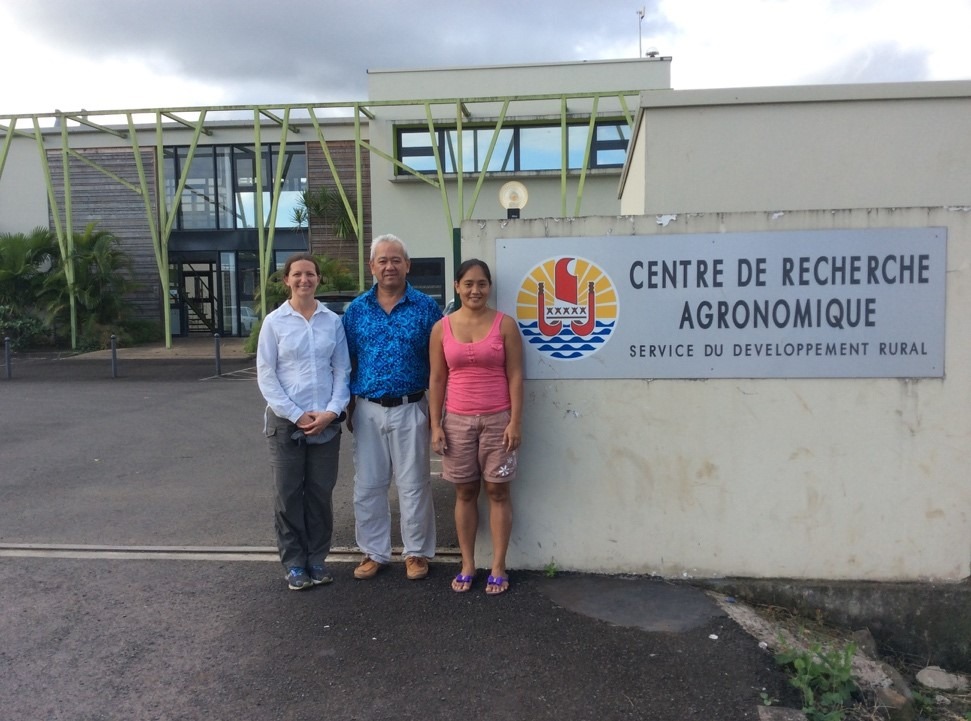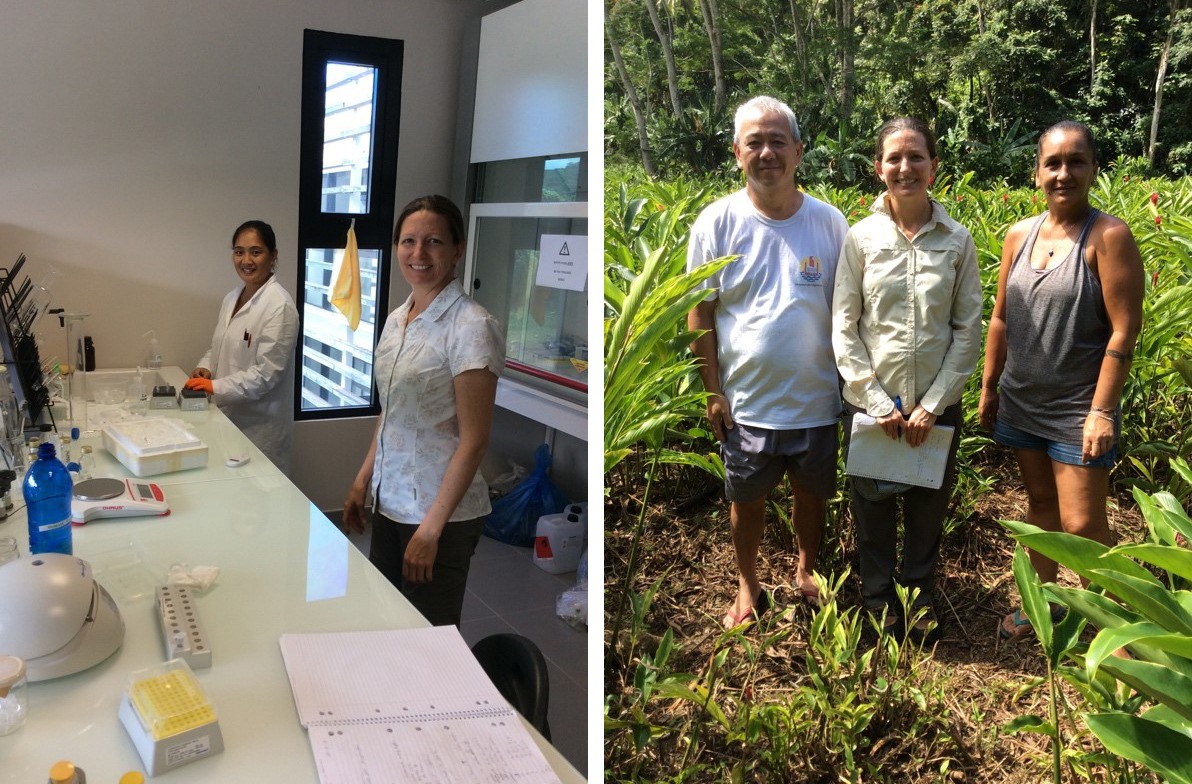

International Engagement Award a biosecurity win for the banana industry
November 25, 2019
The Crawford Fund Queensland Committee supports targeted training of overseas scientists and extension officers in research, extension or governance / management through its International Engagement Awards. As part of a wider initiative by the Crawford Fund to promote mentoring activities by experienced Australian researchers and volunteers, the Committee opened the award to mentoring opportunities as well as training activities.
Dr Kathy Crew from the Queensland Department of Agriculture and Fisheries (DAF), recently received a Crawford-in-Queensland International Engagement Award to mentor and collaborate with Dr Maurice Wong and his colleagues from the Direction de l’Agriculture in French Polynesia to halt the spread of the devastating banana bunchy top virus (BBTV).
“Kathy’s Crawford-in-Queensland International Engagement Award is a great win-win biosecurity story, with benefits both for the South Pacific and for the Qld banana industry. Kathy has confirmed that floral species like Alpinia and Heliconia host a variant of the banana bunchy top virus. This has implications for how BBT biosecurity is managed,” said Prof Bob Lawn, our Crawford Fund Queensland Committee Coordinator.

Banana bunchy top virus (BBTV) is the most devastating viral pathogen of bananas and causes one of the most severe diseases of banana worldwide. In Australia, BBTV is considered to be a high priority exotic pest threat. It is spread by banana aphids (Pentalonia sp.) and through infected planting material and was thought not to infect alternative host plants.
One subgroup of BBTV has limited distribution in Australia and bananas are tightly regulated to protect the major production area (in which this virus is absent). As part of Australia’s banana disease management, new germplasm entering the country undergoes thorough pest and disease assessment, and domestic germplasm multiplied under the industry clean planting scheme must all undergo laboratory indexing for BBTV.
An incursion of BBTV into French Polynesia was detected by Dr Maurice Wong in 2017, worryingly in a previously unrecognised non-banana host, flowering ginger (Alpinia sp.), an important plant in floriculture. Prior to this detection, BBTV was not known in French Polynesia.
In response, the Australian Federal Department of Agriculture and Water Resources imposed a temporary ban on the import of plants of the Order Zingiberales, but more information about the pathogen and disease are required to support an ongoing policy position.
Preliminary partial genome sequencing has identified differences between BBTV in Alpinia sp. plants (BBTV-Alp) and typical BBTV. Infection of Alpinia sp. by BBTV provides an unrecognised pathway for entry of this virus into and movement within Australia.
To manage the collection and to support the movement of healthy planting material and germplasm in the Pacific, local molecular indexing capability for banana viruses to survey plants in French Polynesia was required. Support by the Crawford Fund allowed Dr Crew to provide on-site training in French Polynesia and follow-up mentoring in Australia for Dr Wong and his colleagues in Tahiti.
Investigation of the symptoms and field situation around BBTV in Alpinia sp. was undertaken during Dr Crew’s visit to French Polynesia, and it was found that the disease incidence in Alpinia sp. was very high (approaching 100% in many localities) and infected plants were widespread on the two islands visited.
Banana plants as well as other potential alternative hosts, on which the aphid vectors are known to feed, frequently grow in close proximity to infected Alpinia sp., but none were observed to display typical BBTV symptoms. Indexing of the germplasm collection detected BBTV in a single Fe’i banana plant, however this plant did not display any symptoms. Further investigation is required to determine whether this is typical of BBTV-Alp in banana or any BBTV isolate in Fe’i banana.
Training in establishing banana aphid colonies and conducting controlled transmission experiments was provided to support Dr Wong and his colleagues to investigate BBTV-Alp symptoms in Cavendish banana and alternative hosts.
Sequencing of the full genomes of BBTV from Alpinia sp. and the Fe’i banana reference samples has found they are identical. A peer-reviewed manuscript describing the detection of BBTV-Alp in French Polynesia is in preparation. Research is planned to further investigate the lack of symptoms in the Fe’i banana infected with BBTV-Alp and to determine the distribution of BBTV-Alp within the Pacific.

Applications are now open until 07 February 2020 for the next round of International Engagement Awards supported by our Crawford Fund Queensland Committee.
Preference for these Awards is given to applications targeting Indonesia, Timor Leste, PNG and the Pacific and applications that can clearly demonstrate linkage to Queensland industry priorities, such as beef, fisheries, tropical crops and horticulture, biosecurity, related natural resource management issues, linkages with the private sector and marketing.
Please contact the Crawford Fund Queensland Committee coordinator Prof Bob Lawn if you require further information.




